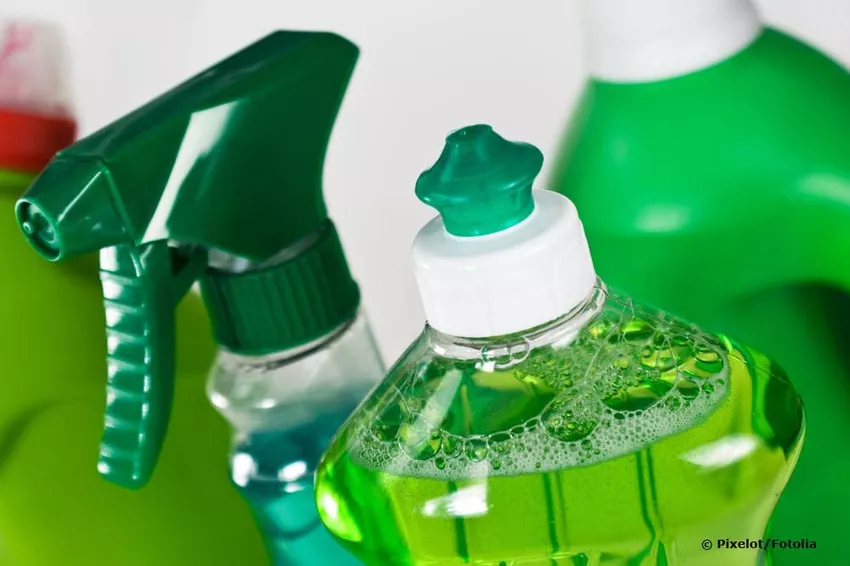
Bugs on plants - a funny nursery rhyme or every gardener's nightmare. The stink bug is particularly nasty because it spreads a foul smell. But don't panic, by no means every garden bug is actually a pest, there are well over a hundred species of bugs worldwide, only a few of them are really harmful. The mean, stinking bug is grey, particularly fond of dropping onto plants from above, and stinks whenever it feels threatened. We reveal how to fight garden bugs.
pests or not?
Gray is the main color of most bugs, making it difficult to visually tell what type of insect it is. Nevertheless, it is important to find out whether there is a pest infestation or whether the bugs are harmless.
Examine the fruit and leaves of the plants on which you spotted a bug. If it scuffing damage, holes or tears in the leaves are pests that need to be gotten rid of.
Bugs have a mouth quill that punctures plants, sucking them out and introducing toxins into the plant's body. Not only the bug itself, but also larvae are dangerous. You must fight both to protect your plants.
Endangered Plants
Where do bugs appear?
Fruit trees are particularly at risk, especially pear and apple trees, strawberries and berries. Vegetable plants affected are primarily cabbage, potatoes and beans, but ornamental plants, perennials and roses are also affected occasionally.
Plants are at greatest risk when they are near meadows. The stink bug lives there and likes to hide in the grass.
detect bug infestation
How does a bug infestation show up?
There are two main ways you can spot a bedbug infestation. Firstly, the one already mentioned pitting and on the other hand the odor, which is mainly spread by the stink bug. As soon as the insects are touched, they give off the pungent smell. But there are other symptoms by which you can recognize the activity of the garden bug:
- brownish discoloration of the puncture site where the bug bit the plant
- torn leaf tissue
- stunted flowers, fruits and shoot tips
- Buds of plants do not open, flowers are only half open
- The stinky secretion makes fruit and vegetables inedible
Bugs are particularly common in the hot summer months when there is little rain. The risk of an infestation is then highest.
prevent bugs
Prevent bug infestation
So that the garden bug does not have a chance to spread, you can take a few precautions:
control
Be sure to check on your plants as early as spring, as soon as it gets warmer. In a very hot summer you should carry out regular inspection rounds. Bugs like to drop from the leaves of the plant as soon as they sense danger. You can then collect the pests and dispose of them so there is no further reproduction.
Water regularly
Water regularly if the plant tolerates it. A consistently moist soil keeps the pests from making themselves at home.
Use garden pond
A garden pond is a great way to control garden bugs. Frogs and toads love the small insects and ensure that a full-blown infestation does not occur in the first place.
combat
Here's how to get rid of bugs
If all prevention has failed, you can fight the pests. Using chemicals should be the last option. There are a lot home remedies, which you can use to combat the infestation:
Shake off
Simply shaking off and then picking up the bug is a simple but effective method. You should always wear gloves when doing this, otherwise the stink bug will spread its foul-smelling secretion on your hands.
soapy water
You can make lye with the help of liquid soft soap or dish soap. Make sure both are free of additives that could harm your plants. Spray the affected plants with the lye several times a day.

spirit
An alternative that you can also use to get rid of bugs is alcohol. Fill the agent into a spray bottle and treat the plants with it several times a day. You can also use soapy water and alcohol alternately to combat the pests.
neem oil
The natural oil obtained from the neem tree is not harmful to plants, humans or animals. You can just spray it on the plant and it will stop the bug from feeding and breeding.
danger: Do not use paraffin oil for control as this is one of the chemical agents. They not only damage pests with the application, but also beneficial insects, such as the ladybug.

